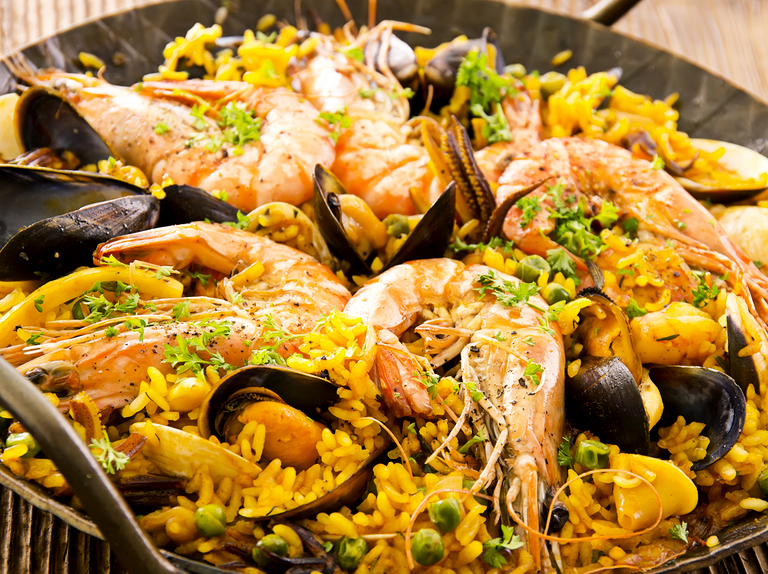Introduction to Spanish seafood dishes
Seafood is an essential component of Spanish cuisine, which is renowned for its vibrant flavors, aromatic spices, and diverse culinary traditions. The coastal regions of Spain boast an abundance of seafood, which has been integral to the country’s cuisine since ancient times. Spanish seafood dishes are known for their simplicity, freshness, and bold flavors that capture the essence of the Mediterranean Sea. From grilled sardines to seafood paella, Spanish seafood dishes are a must-try for seafood lovers.
Popular seafood ingredients in Spanish cuisine
Spanish cuisine features a wide range of seafood, including fish, shellfish, and crustaceans. Some of the most popular seafood ingredients in Spanish cuisine are octopus, squid, shrimp, mussels, clams, anchovies, and cod. These ingredients are often used to create flavorful stews, soups, and rice dishes. Fish such as hake, sea bass, and tuna are also widely consumed in Spain and can be grilled, baked, or fried to create delicious seafood dishes.
Traditional Spanish seafood dishes
Some of the most famous Spanish seafood dishes include paella, which is a rice-based dish that typically contains shrimp, mussels, squid, and saffron. Another popular dish is gazpacho, which is a cold soup made with tomatoes, peppers, cucumbers, and garlic, often served with prawns or croutons. Pulpo a la gallega, or Galician-style octopus, is another traditional Spanish seafood dish, featuring tender octopus seasoned with paprika and olive oil.
Regional variations in Spanish seafood cuisine
In Spain, seafood dishes vary significantly by region, reflecting the country’s diverse culinary heritage. In the Basque Country, for example, seafood dishes often feature cod, hake, and anchovies, while in Andalusia, shrimp, clams, and squid are commonly used. The Catalan region is known for its seafood stews, while in Galicia, seafood is typically served in simple preparations, such as boiled or grilled octopus.
Health benefits of consuming seafood in Spanish dishes
Spanish seafood dishes are not only delicious but also have numerous health benefits. Seafood is a rich source of high-quality protein, essential omega-3 fatty acids, and important vitamins and minerals, such as vitamin D, iodine, and selenium. Consumption of seafood has been linked to reduced risk of heart disease, stroke, and other chronic diseases.
Sustainability and ethical considerations in Spanish seafood industry
Spain has a thriving seafood industry, but it is also facing sustainability challenges, such as overfishing and habitat destruction. To address these issues, the Spanish government and the seafood industry have implemented various measures to promote sustainable fishing practices, such as quotas, fishing gear restrictions, and marine conservation areas. Consumers can also play a role in promoting sustainable seafood practices by choosing seafood that is responsibly sourced and certified by reputable organizations, such as the Marine Stewardship Council (MSC).

